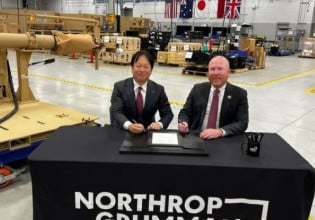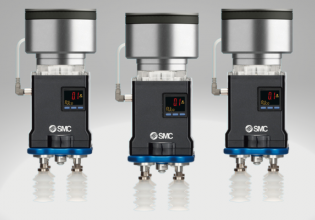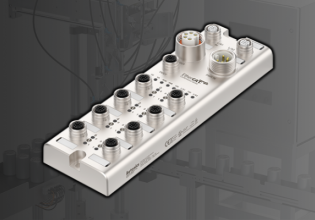Stratus Unveils Next Generation of ftServer Fault Tolerant Computing Platforms
Stratus Technologies has announced their fastest, most reliable generation of ftServers yet, with more processing power and better reliability for use in managing automation systems in manufacturing.
Stratus Technologies has unveiled its 12th generation of ftServers that offer more processing power, reliability, and networking connectivity. The "next-gen" ftServers feature more cores of faster processors, more storage network bandwidth, and support for more operating system interfaces and network capabilities.
Stratus' 12th generation of ftServers offers more processing power, reliability, and networking connectivity than previous ftServer generations (featured above). Video used courtesy of Stratus
Jason Anderson, vice president of strategy and business line management, said of the release: “This new generation of Stratus ftServers is our most powerful ftServer platform yet. With this release, we are supporting the current and future [computational] needs of our customers.”
The increased processing power and reduced downtime available with these new servers mean they will see use in manufacturing for managing automation systems and in commercial market segments for sales processing, inventory tracking, and other such applications.
12th Generation ftServers
Much more computing power is available with the latest Stratus ftServers. In a giant step forward, the 12th generation ftServers went to 44 cores, over the 10 cores in the 11th generation version. Furthermore, the processors themselves have been upgraded to Intel Xeon scalable processors, capable of 2.3 GHz and 2.4 GHz speeds.
Even so, processor speed is not the only speed enhancement. For accessing Storage Area Networks (SANs), these 12th-generation servers can connect over a 32 Gb fiber channel. This is twice the speed of the 11th-generation server, meaning storage access is no longer a limiting factor.

The 12th generation of ftServers went to 44 cores, over the 10 cores in the 11th generation version (pictured above). Image used courtesy of Advantage Industrial Automation
These servers are also more flexible than past models, offering a 10 Gb Ethernet connection over wire or fiber in some configurations. Furthermore, they also support multiple operating systems, including VMware vSphere 7.0.3, Red Hat Enterprise Linux 8.8, and both Microsoft Windows Server 2022 and Windows Server 2019, all of which are updated frequently with security patches, making the system not just fast but secure and ready to deploy in multiple environments.
Platform Configurations
Along with the newest generation of servers are four server platforms, each of which is suited for different business needs. The four major platforms include 6920, 6910, 4920, and 2920.
The 6920 is the highest performance system for the facilities that have the highest computing demand, such as those that are Artificial Intelligence (AI), Machine Learning (ML), or Industrial Internet of Things (IIoT) heavy. The 6910 will likely see service in commercial applications where multiple transactions are occurring at a time, such as in remotely operated plants, or large commercial venues, like stadiums.
From there, the 4920 and 2920 platforms will see a use for medium-sized industries and commercial venues that still require fast data transactions and will need room to grow in the future.

Stratus tServer platforms can run mission-critical applications required to keep plants running efficiently and safely. Image used courtesy of Adobe Stock
Mission Critical
The increased processing power and flexibility in networking, operating system, and configuration options in the Stratus 12th-generation servers make them attractive for data collection and management. Faster speeds and greater reliability make it a good choice for archiving and managing sensor data for automation systems. The data can be used for process control decisions, tracking problems, and troubleshooting operations, as well as managing the mission-critical systems that are required to keep the plant running efficiently and safely.






